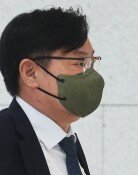Aggravated and prolonged disaster
Aggravated and prolonged disaster
Posted August. 24, 2020 07:31,
Updated August. 24, 2020 07:31
The number of new COVID-19 patients hit record-high for four days in a row after 397 cases were confirmed Sunday. New cases were confirmed among Sarang Jeil Church members and protesters in Gwanghwamun, along with cafes, kindergartens, food courts and funeral homes, spreading the virus throughout the country.
The government expanded Level 2 social distancing guidelines nationwide from Sunday. But some argue that the restrictions should be raised to Level 3 to flatten the steep curve. The government must consider the effect of raising the restrictions to the highest level, which would almost paralyze daily lives and halt movement of all citizens on the national economy and social systems. But it also should come up with flexible and sophisticated supplement plans on the assumption that Level 3 guidelines will be issued because it is currently failing to control the rapid spread of the virus..
More than 70 percent of the patients are concentrated in the Seoul metropolitan area where 26 million citizens live unlike the first spread in Daegu and North Gyeongsang province with a population of five million. Patients with unknown route of infection account for 20 percent of the new cases, which is four times of the controllable rate of five percent. The virus is active in broader areas now, but a lot of medical and quarantine staff are worn out already. It is time to apply flexible quarantine rules as the crisis has different aspects now.
The government should establish a system that quickly and efficiently distributes medical resources based on the severity of patients’ condition. A crunch of hospital rooms and medicines is looming even though the second spread has not peaked yet. A patient in Seoul was transferred to Gacheon University Gil Medical Center in Incheon on early Saturday morning because there was no hospital room in Seoul and Gyeonggi Province. Hospital rooms in Gyeonggi are almost saturated as 93 percent of 592 hospital beds were occupied as of Friday. Medicines are running out as well, which made the quarantine authorities prioritize the elderly aged over 70. The Korean Medical Association suggested the prime minister and the ruling and opposition parties to hold an emergency meeting on Sunday after announcing the second strike on Wednesday to voice against increasing the admission quota at medical schools. The government should find a breakthrough with the medical circles as cooperation with medical staff is all the more important now.
Unlike the projections that the virus would be eliminated by summer or start to die down from the second half of this year, mass infection continued in all seasons throughout the world, which increased the death toll to over 800,000. Some now project that the virus would regularly resurge just like chronic infection diseases that require regular vaccination.
The government should reframe the paradigm of state affairs including public health and fiscal policies by assuming the virus as a constant rather than responding to a temporary disaster. Overcoming the virus would not be easy if the government, medical circles and citizens all come together as this is an unprecedented crisis. Politicians who try to use the current crisis for the benefit only make citizens more tired and divided.
Headline News
- Med professors announce intention to leave hospitals starting Thursday
- Bridge honoring Sgt. Moon Jae-sik unveiled in Pennsylvania
- Chief of Staff Chung tells presidential secretaries to stay away from politics
- US FTC bans noncompete agreements
- N. Korea launches cyberattacks on S. Korea's defense companies







